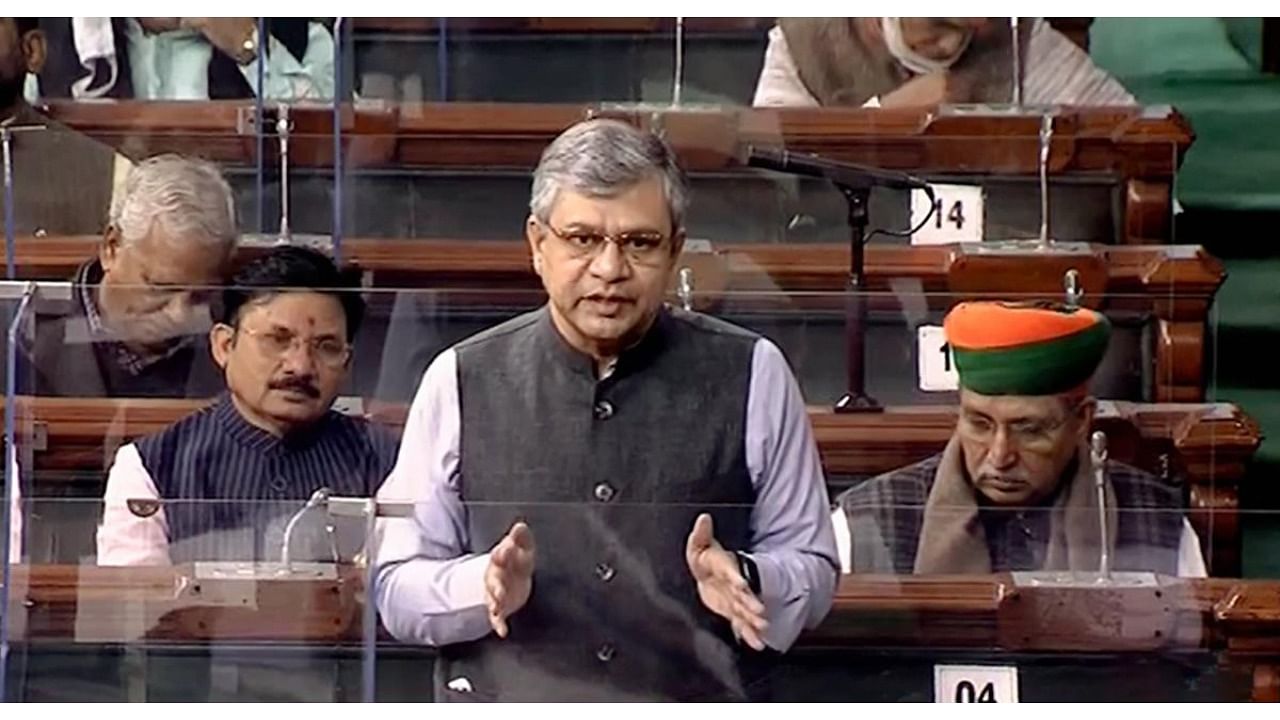
The Modi government on Wednesday withdrew the Personal Data Protection Bill 2019 from the Lok Sabha, eight months after they introduced it in December. Withdrawing the legislation, IT minister Ashwini Vaishnaw said that the Bill was withdrawn after the Joint Parliamentary Committee, formed to examine it, recommended 81 amendments among the Bill’s 99 sections. Vaishnaw tweeted that “... a new bill will be presented for public consultation.”
Soon after Vaishnaw moved to withdraw the Bill, as it was not listed initially in the business and was brought in as part of a supplementary agenda, he issued a statement. “Considering the report of the JCP, a comprehensive legal framework is being worked upon. Hence, in the circumstances, it is proposed to withdraw ‘The Personal Data Protection Bill, 2019’ and present a new bill that fits into the comprehensive legal framework,” the statement read.
IT ministry officials told DH that two of the main concerns were that the Bill had overshot its purpose, and that it was detrimental to the startup ecosystem. “The Bill has been found to be very discouraging to startups and the rapidly growing innovative ecosystem,” an official said. “The Bill’s architecture and design is from 2018 – when an overall approach to the startups and data/digital economy was not envisaged.”
Minister of state for IT Rajeev Chandrasekhar said that a comprehensive framework of global standard laws will replace the Bill, with sections on digital privacy laws suited for contemporary and future challenges.
Another senior ministry official said that the Bill was designed in a pre-Covid time and the challenges and requirements of Digital India have changed drastically since. The official added that the Bill had overshot its ambit.
“The Bill ended up having too much written into it. While the Bill was called the Personal Data Protection Bill, the recommendations paved the way for the inclusion of legislation on non-personal data, as well as data localisation. This is far beyond the original ambit, and we are looking at a crisper legislation with ambiguity,” the official added.
Congress leader Manish Tewari, who was a member of the 31-member Committee, said after the withdrawal that Big Tech had won, and India lost. “For (a) full two years during (the) height of wave 1 & 2 of Covid-19, MPs across parties worked to better it. Big Tech never wanted this Law. Big Tech won. India lost,” Tewari tweeted.
1
The Internet Freedom Foundation tweeted that the Bill’s withdrawal comes after four years of deliberations. “We are cautiously watching these developments and hope the Ministry will use this opportunity to address the numerous criticisms of the bill made by various stakeholders during the consultation process,” read the tweet.
1
The Bill was brought in 2019 after the 2017 Supreme Court judgement by Justice KS Puttaswamy which recognised the right to privacy as a fundamental right. The Bill sought to protect personal data by the Data Protection Authority, and divided data in three parts – personal data, critical personal data, and sensitive personal data.
As per the Bill, ‘sensitive personal data’ must be stored in India and that ‘sensitive personal data’ and ‘critical personal data’ will have to be stored in India. The Bill also exempted the government from its provisions. Tewari said that he opposed the Bill on that ground.